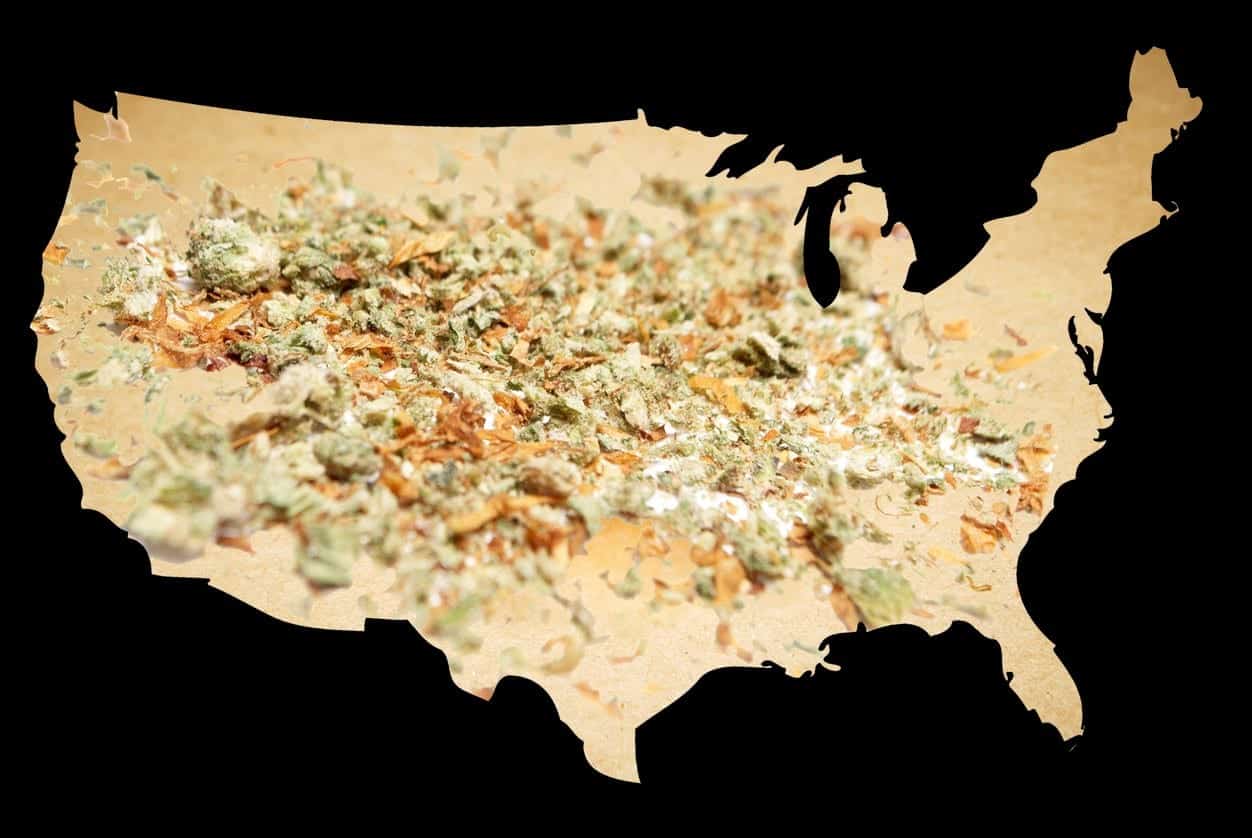- Home
- THE FIRM+
- Criminal Defense+
- CASE RESULTS
- AREAS WE SERVE+
- FAQ’s
- Blog
- Contact
AZHARI LLC BLOG

Posted By: Sami Azhari
Category:
Our country saw a lot of big changes during the recent election. The representative of a different party will soon be president. Multiple women reached historic milestones by being elected to Congress, including the first Somali-American lawmaker and the first Latina senator.
One thing that seems to have gotten a bit lost amongst all of the other big changes, though, is that four more states voted to legalize recreational marijuana for adults 21 and over. Additionally, four states voted to legalize medical marijuana. All told, over two dozen states have legalized either recreational or medical marijuana in our country.
So where does Illinois stand with legalization and penalization for drug crimes?
Testing the Waters… but Just Barely
Currently, our state is running a pilot program to test whether or not citizens (and the state itself) would benefit from the legalization of medical marijuana. How are they doing this? Over 10,000 patients throughout the state who have one of 39 medical conditions, including terminal illnesses and post-traumatic stress disorder, currently have a license to buy and smoke medical marijuana.
However, progress with this program has been slow. It’s taken a lot of butting heads and compromises among lawmakers to even allow certain conditions to be added to the list of qualifying patients. Whether or not this program will expand is uncertain, but it is set to run through 2020.
For those without any qualifying medical conditions who still wish to use marijuana, progress may be even slower. The biggest advancement in the legalization of recreational marijuana came in late July. Governor Rauner signed a law that changed the statewide policies on marijuana, decriminalizing small amounts. Marijuana had previously been decriminalized in the city of the Chicago, but the new law made policies consistent throughout Illinois.
Now, if you are found with 10 grams of marijuana or less, you will no longer have to face misdemeanor charges or the issues that come with getting a stain on your criminal record. Instead, the most serious penalties you could face are fines of up to $200 and the possibility of having to attend a drug treatment course. In other words, getting caught with a small amount of marijuana will be no more severe than getting caught violating traffic laws.
Speaking of traffic, the new law also loosened the laws on driving under the influence of marijuana. Rather than receiving penalties for any level of THC found in your system, it now takes 5 nanograms of THC in your blood or 10 nanograms of THC in your saliva to constitute a DUI charge.
Laws about distribution, trafficking, or possessing larger amounts of marijuana, however, have stayed the same, and can result in felony charges.
Does the New Law Help Those Who Already Have Marijuana Charges on Their Record?
Short answer? No. If you already have a misdemeanor marijuana charge on your record, it won’t go away just because what you did is no longer a criminal offense. Employers, landlords, and others will still be able to see your charge and this could make your life more difficult.
Your best bet is to see if you have the option of getting your record sealed or expunged. If you do not have pending charges against you and it has been at least three years since your conviction, you have a good chance at having your slate wiped clean. This applies even for some felony marijuana charges.
Remember that only the most minor marijuana possession offenses have been decriminalized, and our state’s criminal penalties for drug charges are quite severe. If you have been charged, you need to do everything you can to find someone who can help you fight back with a strong defense strategy.
About the Author:
Sami Azhari has been working as a lawyer since 2007, after receiving his Juris Doctor from the Michigan State University College of Law. He has handled numerous state and federal cases, and is known throughout the Chicago and Rolling Meadows area for providing his clients with high-quality, skilled representation. He has been recognized by SuperLawyers, the National Trial Lawyers Association, and other notable organizations, and has spoken at a number of legal conferences.


























































